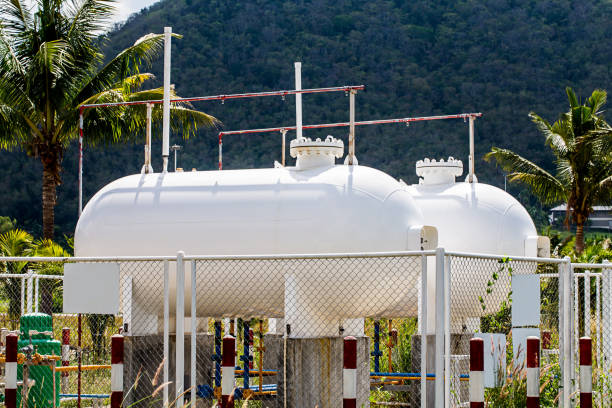Shifting Dynamics in Propane Tank Infrastructure and the Evolving Needs of the Fruit Tree Industry

Washington State stands as the leading producer of apples, pears, and cherries in the United States. The fruit tree orchards spanning over 265,000 acres rely on propane-powered wind machines to safeguard the crops from frost damage. A single wind machine, coupled with a 500-gallon propane tank, is typically employed to protect a 10-acre block of trees. These wind machines circulate air and slightly raise the temperature, mitigating the risk of bud damage and ensuring optimal fruit yield.
Challenges and Seasonal Demands
The demand for propane in the fruit tree industry can be highly unpredictable, as it is contingent on weather conditions during the frost season. Warmer years may witness unused propane reserves, while colder years can lead to a surge in demand, creating the need for additional propane supplies. In April 2022, an unprecedented cold snap devastated fruit crops, resulting in up to a 70% loss in the hardest-hit regions. The sudden surge in demand during this exceptional event highlighted the challenges faced by suppliers to meet the urgent propane needs of orchardists.
Implications of the Cold Snap
The extensive cold damage experienced in 2022 marked a rare occurrence not seen in nearly four decades. The fruit industry, which has deep roots in the Yakima Valley, faced significant difficulties. The demand for propane skyrocketed, with approximately 10 million gallons delivered in central Washington during the frost season, four times the usual volume. The unexpected surge in demand strained the propane supply chain, resulting in logistical challenges and depleted inventory across the Pacific Northwest.
Challenges in Meeting Demand
Meeting the unprecedented demand for propane during the cold snap presented significant obstacles. A shortage of drivers and trucks hindered the timely delivery of propane to refill depleted tank inventories. The limited resources and time constraints posed immense challenges for suppliers in ensuring a continuous supply of propane to orchardists. However, prepared suppliers who possessed robust infrastructure and established supplier relationships were better equipped to manage the crisis.
The Shift towards Tank Ownership
The exceptional nature of the 2022 frost season has prompted some orchardists to reconsider their reliance on leased propane tanks. In line with a trend observed in the Midwest, many fruit farmers are now exploring the option of purchasing their own tanks to gain greater control over their propane supply. This shift empowers orchardists to choose their propane supplier, providing a sense of security during times of high demand or price fluctuations. However, tank ownership entails significant capital investment, maintenance responsibilities, and the need to manage supply logistics traditionally handled by experienced suppliers.
Balancing Considerations: Tank Ownership vs. Leasing
The decision between tank ownership and leasing involves a careful evaluation of the advantages and disadvantages associated with each option. While tank ownership provides greater control and flexibility, it necessitates a substantial upfront investment and ongoing maintenance. Leasing, on the other hand, offers convenience and access to expertise, but may limit the ability to select preferred suppliers. Orchards must weigh these factors and consider the impact on the supply chain while ensuring a reliable and secure propane supply for their operations.
Building Resilience in the Supply Chain
Regardless of whether orchardists choose tank ownership or leasing, it is crucial for both customers and suppliers to proactively address challenges and build resilience in the propane supply chain. Sustaining strong relationships, diversifying sources of supply, and investing in infrastructure are key strategies to ensure a reliable and secure propane supply in the future. Collaborative efforts between industry stakeholders will be essential to meet the evolving demands of the fruit tree industry and ensure the successful journey of fruit tree crops to market.
















